Research & Practice Highlights
Bill & Melinda Gates Institute for Population and Reproductive Health
Located in the Department of Population, Family and Reproductive Health at the Johns Hopkins Bloomberg School of Public Health, the Gates Institute is dedicated to the advancement of scholarship and science for social change. The Institute conducts and facilitates cutting-edge research in family planning, adolescent and youth reproductive health and population dynamics, and translates science into evidence-informed policies, programs, and practice. For more information, please visit www.gatesinstitute.org.
ICFP2022 - Pattaya City, Thailand 14-17 November 2022
Since 2009, the International Conference on Family Planning (ICFP) has served as a strategic inflection point for the global reproductive health community. In addition to being the world’s largest scientific conference on family planning and reproductive health, ICFP serves as an international platform for countries, organizations, and individuals to make important commitments and celebrate achievements. Sponsored by the Gates Institute, the ICFP convenes every two years.
New Commitments, Research, and Youth Take Center Stage as Hybrid ICFP2022 Draws 3,500 Global Delegates to Share Research Innovations and Address Global Challenges in Pattaya, Thailand

(ICFP2022 Ambassador and UN Special Rapporteur on the Right to Health Dr. Tlaleng Mofokeng (“Dr. T”) welcomes delegates to the sixth International Conference on Family Planning held in Pattaya City, Thailand 14-17 November 2022 | credit: ICFP2022)
Ten years after the 2012 London Summit on Family Planning, the 2022 International Conference on Family Planning (ICFP) celebrated the fact that tens of millions more women today are using a modern method of family planning (FP), and a growing number of governments, corporations, funders and non-governmental organizations are pledging to take specific actions to expand access to voluntary, rights-based contraception.
At the same time, the world’s largest scientific conference on family planning and sexual and reproductive health and rights (SRHR) highlighted the urgency of this moment, particularly as COVID-19 and other crises continue to divert healthcare funding from family planning efforts.
This year's convening provided an important opportunity to reunite the community more than two years after COVID-19 was declared a pandemic and global emergency, providing a unique look into our challenges and triumphs, as well as our weaknesses and resilience. Pandemic mitigation measures forced health systems and individuals in need of FP care to adapt with innovations like tele-health services and community-based product distribution. These novel adaptations underscore the value of strong health systems and provide a robust foundation for future innovations that address emerging reproductive health needs.
As the preeminent event for countries, organizations, and individuals to make important family planning announcements, this year’s ICFP saw several historic new FP2030 pledges, including a five-year, USD 15 million commitment from the United States Agency for International Development (USAID).
ICFP2022 took place against a global backdrop of growing extremism and erosion of gender equality and reproductive rights. Several sessions addressed what the community can and should do to protect and advance reproductive rights and drew on expertise from different regions and settings – including crisis settings.
Youth delegates were a driving force behind ICFP2022. In the conference’s closing plenary session, youth advocates from around the globe gathered to share personal stories from their work, and to present a Global Roadmap for Action for Adolescents and Youth Sexual and Reproductive Health and Rights (AYSRHR). The roadmap – designed and led by youth in collaboration with over 40 organizations – sets out 2030 goals, priorities, and recommendations, showing unity in support for the expression of young peoples’ SRHR needs and values across the world.
Elevating voices has long been a priority for ICFP, and community-driven content was a focal point throughout this year’s conference. In the lead-up to ICFP, community members were invited to share stories on the power of family planning in their own lives, as well as their families and communities. There was also dedicated ICFP Community Action programming designed to leverage the expertise and reach of ICFP partners and supporters and celebrate the diverse perspectives of the family planning community.
A record-breaking 3,100+ abstracts were submitted for ICFP2022, illustrating a growing global interest in family planning and the many ways it promotes human and planetary health, improves education and builds strong economies. This year’s scientific program represents the strongest body of new family planning research presented at an ICFP yet, featuring more than 200 scientific sessions across oral and flash sessions and 6 poster sessions across 16 tracks covering a wide diversity of research, program and advocacy topics. The scientific program included 16 tracks to which people submitted abstracts and an additional track of invited speakers and sessions.
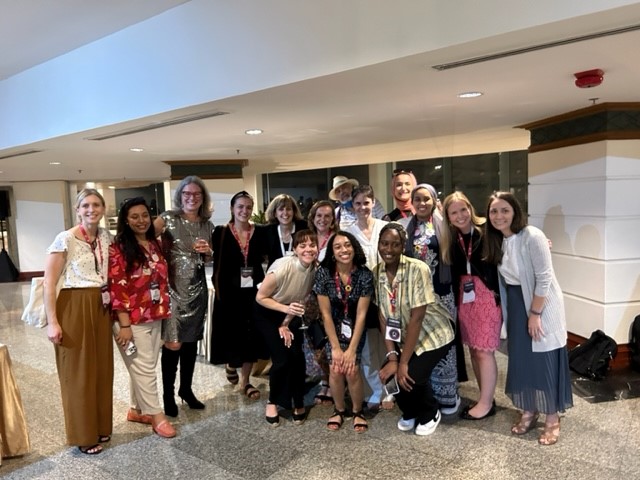
For the first time, ICFP was offered in a hybrid format, allowing over 3,500 in-person delegates and 50,000 community members to join virtually and onsite. Virtual attendees had live-streamed access to the most popular scientific sessions, on-demand recordings, plenary hall programming, and interactive features such as polling and Q&A with session moderators and presenters.
This year also marked the launch of ICFP LIVE and the Family Planning News Network (FPNN), which bring together a wide breadth of journalists and storytellers to produce original programming, including live interviews, panel discussions and news events, for in-person and virtual audiences. With an estimated 50,000+ community members worldwide, ICFP Live and FPNN featured short, partner-driven sessions on topics like sex taboos, male engagement, emergency contraception, abortion rights, climate change, planetary health and more.
The FP movement is seen at all levels of society, including local communities, government institutions, private sector innovators, funding institutions, and NGOs around the globe. For 13 years, the ICFP community has worked together to move family planning and reproductive health priorities to the center of development.
ICFP2022 brought the family planning and reproductive health community together to strengthen our collective movement to achieve universal access to family planning by 2030 as an essential element of Universal Health Coverage. ICFP partners and community members have contributed to the evidence, research and lessons learned about the power of family planning, and how important it is that access to these products and services are considered essential to the achievement of universal health coverage.
For more information, please visit www.icfp2022.org.
Advance Family Planning- Celebrating 13 years of SMART Advocacy
The Advance Family Planning (AFP) project comes to a close after 13 years of promoting evidence-based advocacy to create change. Established in 2009 by Professor Duff Gillespie and Sabrina Karklins, AFP has worked alongside organizations worldwide to expand access to quality contraceptive information, services, and supplies.
AFP developed, field-tested, and scaled up the SMART—Specific, Measurable, Attainable, Relevant, and Time-bound—Advocacy approach that focuses on opportunities that have the highest potential for success in the near term. The approach allowed family planning champions to come together and maximize their time and funds to effectively persuade those in power to act.
Since 2009, AFP achieved nearly 3,000 budget, policy, and visibility wins at every level of government, potentially benefiting more than 190 million women of reproductive age. AFP’s advocacy mobilized $168 million in funds from national and local governments and the private sector for reproductive health services, supplies, and information. These achievements are the direct result of the work of over 417 advocacy coalitions at the project’s height. For more information on AFP’s impact, check out The Power of Advocacy: An Impact Report from Advance Family Planning.
The SMART Advocacy website centers on the SMART Advocacy tool, redesigned to address any health or development issue. The tool will remain publicly available for use in English, French, and Spanish. The site also features AFP’s community of skilled advocates who are expert in the SMART approach. Many networks and organizations have already adapted the approach to their own work. BSPH will continue to offer the SMART Advocacy online course taught by AFP’s co-principal investigator Beth Fredrick.
As AFP ends, Professor Gillespie described five lessons from AFP to continue fueling change in the future in PSI’s recent Impact Magazine. These lessons include the importance of devolution, advocacy for policy implementation, ethical and emotional arguments, local ownership, and advocacy monitoring. Read A Decade of Learnings for the Next Decade of Progress for more information.
The Challenge Initiative (TCI)

TCI Efforts Lead to 2 Million New Family Planning Clients
The Challenge Initiative's (TCI's) efforts to scale high-impact practices contributed to more than two million additional family planning clients across 10 countries in its first five years, according to a new article published Nov. 14 in Global Health: Science and Practice.
From September 2017 through June 2021, TCI engaged more than 100 city governments across 10 countries in four regional hubs, adding 2.02 million new family planning clients covering an urban population exceeding 100 million. During the September 2017 to June 2021 time period, 39 local governments across the 10 countries – Benin, Burkina Faso, Côte d’Ivoire, India, Kenya, Niger, Nigeria, Senegal, Tanzania and Uganda – “graduated” from TCI towards self-reliance.
The authors note that understanding successful scale-up models that reach underserved urban communities is key for meeting the United Nations’ Sustainable Development Goals. As of September 2022, TCI has engaged more than 160 cities across 12 countries and contributed to more than 2.8 million additional family planning clients since its 2016 launch.
The Performance Monitoring for Action (PMA)
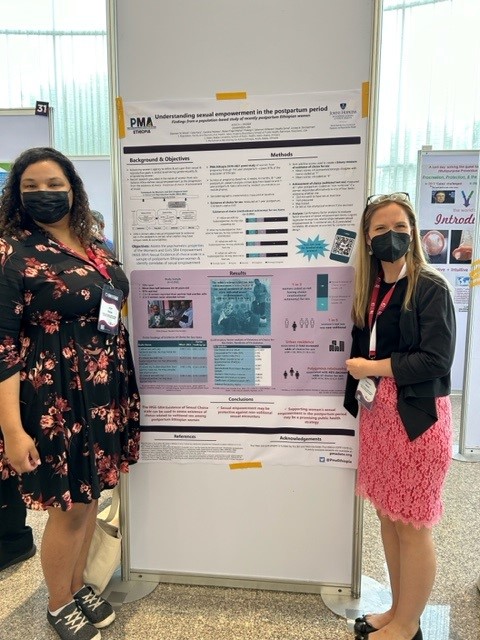
PMA data was utilized and shared in over 30 posters, flash presentations, and oral presentations at ICFP 2022. A full list of PMA presentations can be viewed on the PMA website.
PMA Ethiopia data: Critical data source for Federal Ministry of Health
The Performance Monitoring for Action (PMA) Ethiopia is a large-scale survey project designed to generate data on a variety of reproductive, maternal, and newborn health (RMNH) indicators. PMA Ethiopia implements cross-sectional and cohort surveys to fill a data gap—collecting information not currently measured by other large-scale surveys with a focus on measuring RMNH comprehensiveness of care services, and the barriers and facilitators to such care.
PMA Ethiopia data, cross-sectional and cohort, is viewed as a valued data collection platform and a credible and reliable data source for key stakeholders in Ethiopia including the Federal Ministry of Health (FMoH) and Regional Health Bureaus (RHBs).
At the most recent International Conference on Family Planning (ICFP) the Federal Ministry of Health (FMoH), represented by Dr. Dereje Dhuguma, the State Minister of Health of Ethiopia, expressed how the FMoH uses PMAET data and the role the data plays in informing FMoH’s family planning programs and policies. Speaking at the Ministerial Panel on South-South Cooperation on November 15th, Dr. Dhuguma stated that monitoring the progress of the FMoH’s programs is critical to the work being conducted by the FMoH. He went on further to express how having access to PMA Ethiopia data, along with other surveys, is instrumental to tracking progress, but also making needed adjustments to efforts and activities of the Ministry.
PMA Ethiopia data is publicly available and can be downloaded here.
Data in Action: Sharing New National/State Child Health Data

The CAHMI released findings from the 2020-2021 National Survey of Children’s Health (NSCH) on the Data Resource Center for Child and Adolescent Health Interactive Data Query (IDQ). The IDQ allows point and click access to all measure findings by national, regional, and state geographic areas and numerous child subgroups based on health status, demographics, insurance and services quality and more. This is the sixth yearly data release since 2016, allowing for data trending.
To help you dive deeper into and optimize the NSCH data, we will be releasing the combined 2020-2021 NSCH Datasets and Codebooks to download in January 2023! Sign up for our mailing list to be among the first to know when they are available.
Research in Action: Promoting a Strengths-based Approach on a Global Scale
Dr. Christina Bethell’s research on Positive Childhood Experiences (PCEs) (Bethell, C. JAMA 2019) advanced knowledge and action regarding the significance of promoting relational health in childhood to mitigate negative mental health effects in adulthood. This research resonates across cultures and emphasizes the power we hold as individuals and as a community to promote child wellbeing. The seven PCEs have been culturally adapted and are being used in Kenya by the Green String Network to promote community healing. The PCEs Scale was also most recently translated and tested to measure its validity and reliability in a Turkish context (Çiçek, İ & Çeri, V., 2021), further highlighting CAHMI’s contributions to the field of measuring relational health.
Engagement in Action: Advancing an Early Childhood Integrated Approach to Care
The CAHMI has collaborated on the federally funded Mississippi Early Childhood Integrated Health Systems project known as Mississippi Thrive! to advance statewide implementation of a family engagement model of care that includes the CAHMI’s evidence-based Cycle of Engagement Well Visit Planner model and tools. Our partners on the project include The University of Mississippi Medical Center and family organizations such as Mississippi Families for Kids (MFFK) and Families as Allies (FAA). This scaling framework will serve as a model for other states interested in optimizing an evidence-based approach to creating a truly integrated early childhood health system focused on promoting the healthy development of children.
We have also been working with other national organizations, such as the National Black Child Development Institute (NBCDI) and their Affiliate network, who work to advance the quality of life of Black children and families through family empowerment, education, child health, literacy, and public policy programs. The CAHMI and NBCDI have partnered to provide families with the resources and tools needed to engage and drive their child’s well-care. Currently, we are working with affiliate leaders in Charlotte, NC, Chicago, IL, and Cleveland, OH and exploring implementation possibilities to uplift organizational goals, meet family needs, and improve child and family health.
Out and About

This Fall, CAHMI shared our research and resources at the 2022 American Public Health Association Annual Meeting, CityMatCH, the National Black Child Development Institute Annual Conference, and Family Voices Annual Summit in addition to other national meetings. Connecting with state leaders and policymakers, healthcare workers, community leaders, and researchers, we promoted the DRC as a valuable tool for advocacy, innovations and systems and policy-level change.
Youth Advisory Board at Bloomberg Summit
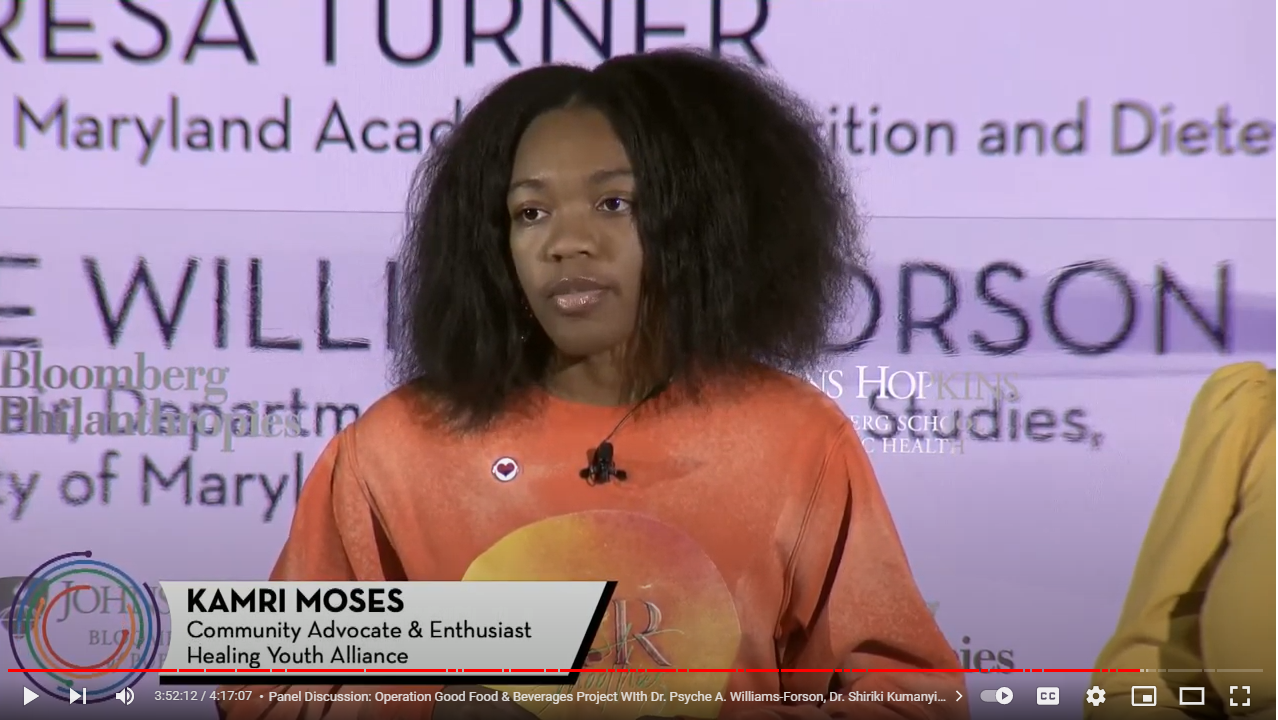
Center for Adolescent Health Youth Advisory Board (YAB) member Kamri "Kam" Moses brought the Baltimore youth voice and expertise on food insecurity and healthy eating to a panel at the Bloomberg American Health Summit in Philadelphia earlier this month.
Representing the Healing Youth Alliance, Kam explained that running her healthy smoothie business, KR Smoothies, she had to "meet people where they are" in order to have conversations about accessing and eating healthier foods.
The panel was moderated by Dr. Psyche A. Williams of the University of Maryland, and included Dr. Shiriki Kumanyika of Drexel University and Teresa Turner from the Maryland Academy of Nutrition.
Kam's panel starts at the 3 hour 47 minute mark of this video of the summit.
Photo source: screenshot from Bloomberg Summit video
Healthy Teen Network, CAH Start Research to Practice Center
Healthy Teen Network, in partnership with the Center for Adolescent Health at the Johns Hopkins Bloomberg School of Public Health, has been awarded funding by the U.S. Department of Health and Human Services (HHS) Office of Population Affairs (OPA) to establish a research-to-practice center to expand the delivery of trauma-informed and inclusive practices in adolescent sexual and reproductive health programming and care.
With the Research-to-Practice Center, the project team envisions a world in which all young people have access to safe, inclusive, and affirming sexual and reproductive health programs and care that are responsive to their lived experiences and supportive of their personal sexual health journeys. The products and accompanying technical assistance (TA) will improve the quality, access, and equity of adolescent sexual and reproductive health promotion services and programs.
The team will apply a comprehensive and holistic understanding and application of what it means to provide trauma-informed and inclusive programming and care, in person and virtually. Now more than ever, there is a pressing need for widespread integration of trauma-informed and inclusive practices that accounts for the many ways that adversity may impact young people’s sexual and reproductive health.
Learn more about the partnership here.
Former CAH Director Dr. Philip Leaf Retires, Doesn't Slow Down
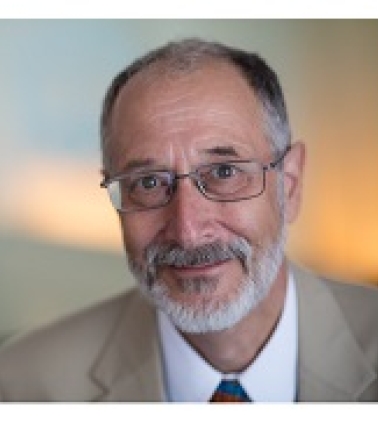
Longtime CAH director Dr. Philip Leaf has retired from the Johns Hopkins Bloomberg School of Public Health, although he continues to be active at Hopkins and in Baltimore.
Dr. Leaf has developed many partnerships, program and initiatives dedicated to supporting youth in Baltimore and making sure their voices are heard, and he continues to do this work. This includes serving on the CAH Community Advisory Board.
“I’m grateful to Phil for the leadership he’s provided to CAH and to his many years of service to Baltimore City, especially his unflagging dedication to young people," said CAH Director Tamar Mendelson. "Phil is an inspiration to me. He is a force!”
Interview with Allison West, PhD, New HARC Lead
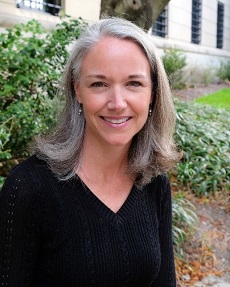
The Home Visiting Applied Research Collaborative has been led by Dr Anne Duggan, Professor in the Department of Population, Family and Reproductive Health since its inception in 2012. Under her guidance, HARC has been successful in two competing continuation applications, leveraged millions of additional funding and launched dozens of studies using its practice-based research network of several hundred home visiting programs. HARC has also launched a multi-year project to change the paradigm of home visiting research to answer the question – what works best for whom, under what conditions, why and how.
Dr Anne Duggan has recently retired from the department and has handed over HARC’s reins to Allison West – an Assistant Professor in the Department. The below Q&A was recently prepared to introduce Dr Allison West to HARC’s members.
- How did you become interested in home visiting research? I’ve always been interested in applied, high impact research that can inform service delivery and social policy. Early in my clinical career I worked with teens with very complex mental health needs. The more I learned about their life stories, the more I wanted to understand and strengthen preventive interventions early in the life course. Ultimately, I decided to pursue a doctoral degree to do just that. I was first exposed to home visiting in my doctoral program when I was privileged to work as part of a research-practice partnership on a federally funded study investigating the “value added” of supplementing home-based Early Head Start services with the Attachment and Bio-Behavioral Catch-up home visiting program. This experience piqued my curiosity about the potential of evidence-based home visiting to promote public health and health equity.
- Could you describe your current body of research? My goal is to conduct research that is relevant and useful. This requires extensive collaboration, community engagement, and use of multiple methods. Most of my research focuses on understanding and strengthening home visiting services. For example, I am collaborating with multiple partners to conceptualize and develop a measure of reflective supervision for the home visiting context. I am also involved in studies to strengthen home visiting services for parents who have learning differences or families affected by substance use. Some of my research also involves or focuses on other services such as WIC and child welfare; I value these opportunities to learn from others working outside home visiting, explore commonalities, and understand how services interface within systems of care.
- What are the challenges facing the field in the next 5 years and how can HARC help address them? Great question. The HARC leadership team is actively seeking input from practitioners, researchers, and policy makers to identify critical issues in the field that are both ongoing and emerging. As the pandemic subsides, the future role of virtual home visiting is certainly on many minds. A few other issues at the forefront involve workforce challenges, family engagement, and equity (these issues are not mutually exclusive). I believe HARC can help address these issues by identifying and raising awareness of research questions that are highest priority to the field, facilitating connections among researchers who have the interest and expertise to address them, and strengthening capacity within the field to conduct and disseminate innovative research efficiently.
- Where do you see opportunities for growth in the home visiting research field over the next 5 years? I see unlimited opportunities for multidisciplinary collaboration on research to address priority issues. One area of potential growth involves work to identify core components of home visiting interventions, the mechanisms through which they effect change in specific outcomes, and which components works best for whom, why, and how. In times of limited resources (always!), this knowledge will help inform how to use those resources most equitably and effectively. There is also interest in the field in building capacity for data sharing, data linking, and data interoperability, and for using big data and principles of open science. To grow, the field needs researchers who are creative, outside-the-box thinkers. We also need we need to attract and support researchers with diverse areas of expertise, viewpoints, cultural backgrounds, and worldviews.
HPRIL Team Publishes Resource Guide for WIC Agencies
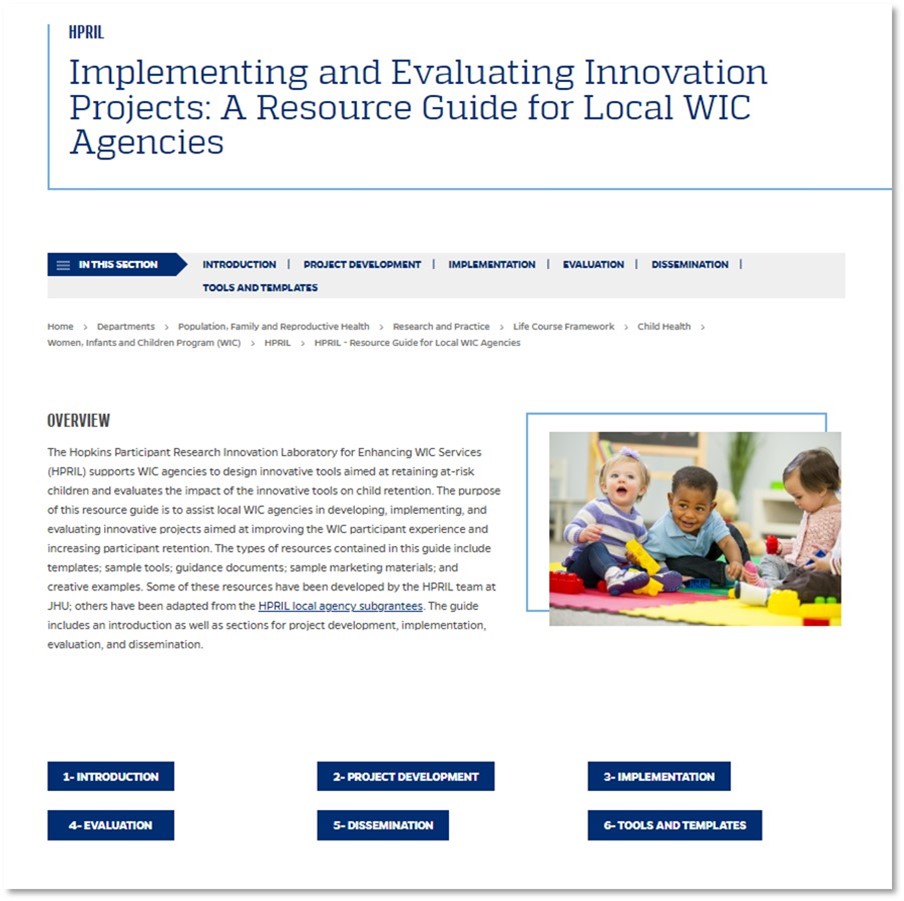
The USDA Special Supplemental Nutrition Program for Women, Infants, and Children (WIC) provides income-qualified pregnant and postpartum women, infants, and young children with nutritious supplemental foods, education, breastfeeding support, and referrals to health and social service programs. Despite the need for the program and demonstrated effectiveness, WIC participation has declined in recent years, and there are recognized problems with retention (i.e., continued participation), particularly among children 1-4 years.
The Hopkins Participant Research Innovation Laboratory for Enhancing WIC Services (HPRIL), funded through a cooperative agreement with the USDA Food and Nutrition Service, supported WIC agencies to design innovative tools aimed at retaining at-risk children and evaluated the impact of the innovative tools on child retention. In addition to providing guidance and support to five funded subgrantee agencies, HPRIL sought to build capacity among local WIC agencies across the country to enable them to effectively implement and evaluate retention-related projects and disseminate findings.
Implementing and Evaluating Innovation Projects: A Resource Guide for Local WIC Agencies, launched in October 2022, was designed to be used by state and local agencies to develop, implement, and evaluate innovative projects aimed at improving the WIC participant experience and increasing participant retention. Resources in the web-based guide include templates, guidance documents, training materials, data collection tools and videos used throughout the HPRIL project and were developed by HPRIL and the five subgrantee agencies. The organization of the resource guide is meant to serve as a step-by-step process for agencies to use when considering launching a new innovative tool aimed at retaining WIC participants.
The HPRIL team will share evaluation findings in the coming months through a white paper published on the project website. If you have any questions, please contact Elisabet at eeppes1@jh.edu.
